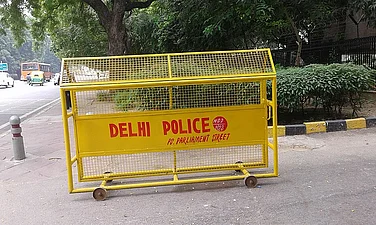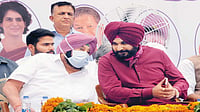In 2018, a national survey was carried out to determine the ‘extent and pattern of substance use’ across India. This survey provided data on drug and substance abuse. The findings of the nationwide study served as key to the Union ministry of social justice and empowerment for drafting its National Action Plan for Drug Demand Reduction (NAPDDR) 2018-2023. The study concluded that cannabis and its derivatives had an estimated 2.90 crore consumers across India in the 18 to 75 years age group and another 20 lakh users in the 10 to 17 years age bracket. The previous such survey, conducted in 2001, had estimated cannabis users in India at 87 lakh.
The number of cannabis consumers was second only to those for alcohol – 15.40 crore across the two age brackets – and much higher than those who consumed other categories of drugs and substances classified under the survey, such as opioids, sedatives, inhalants, cocaine, amphetamine-type stimulants (ATS) and hallucinogens.
ALSO READ: Weed Or Weedout
On June 14, one of these 3.10 crore alleged cannabis users died by suicide at his Mumbai apartment. Sushant Singh Rajput was a rising star in the Hindi film industry who was reportedly struggling with mental disorders. Rajput’s sudden death triggered a political and media frenzy that began as a quest to determine why he took the extreme step. Three months later, this ostensibly noble pursuit of justice for Rajput is now an ugly charade that has painted the late actor as an incorrigible ‘drug addict’ who was allegedly pushed in the throes of cannabis abuse by his companion, actor Rhea Chakraborty.
The Narcotics Control Bureau (NCB), whose mandate is to investigate inter-state or international drug trafficking networks, invoked various sections of the Narcotic Drugs and Psychotropic Substances (NDPS) Act to arrest Chakraborty on September 8. As per the NCB, Chakraborty is an “active member of a drugs syndicate” and had been procuring illegal drugs (marijuana to be specific) for the late actor. So far, the NCB’s case against Chakraborty seems to hinge on the discovery of “59 grams of curated marijuana” from two men, Abbas Ramzan Ali Lakhani and Karan Arora.
The brouhaha over the Rajput-Chakraborty case has brought cannabis, and the larger issue of criminalization of its production, distribution or consumption, under the NDPS Act back into focus. As the national survey of substance abuse suggests, cannabis and its derivates are the most widely consumed ‘drugs’ in India. Cannabis, marijuana, hemp, pot, bud, ganja, bhang – call it what you wish, but there’s no denying that the venerable, yet reviled, plant is endemic to the Indian subcontinent. The use of its derivatives as medicine or recreational drugs is common among spiritual and ordinary folk alike. Chakraborty is in police custody for allegedly procuring cannabis for her former beau and for purportedly knowing two men who were in possession of 59 grams of the banned substance. A walk down the ghats or alleys of Varanasi, the Lok Sabha constituency of Prime Minister Narendra Modi, may invariably lead to an encounter with holy men who possibly smoke twice this quantity within an hour – and for several hours of the day – without the fear of being apprehended by NCB sleuths or dubbed as criminals.
For over three decades now, the five-bladed leaf has been a banned substance under the NDPS Act of 1985; clubbed in the same category as indisputably more addictive and harmful substances as opioids, amphetamine-based drugs, psychedelic and psychotropic substances. This, even as the past decade has witnessed a reappraisal of cannabis globally with several countries legalising its recreational use and researchers studying its potential medicinal use.
ALSO READ: Meth-en-Scene
The NDPS Act criminalises cannabis use under the classifications of charas (the separated resin of cannabis), hashish oil, ganja (the flowering or fruiting tops of the cannabis plant) or any mixture, with or without any neutral material, of these derivatives. The Act also bans cultivation of cannabis and “manufactured drugs” made from “medicinal cannabis” (any extract or tincture of hemp).

Seized drugs are set on fire.
However, the Act allows the exploitation of cannabis as bhang by excluding the categorisation of cannabis leaves and seeds as narcotic substances. Bhang is typically made by grinding cannabis leaves and seeds and mixing it with milk (though the clandestine use of the plant’s flowering tops – a banned substance – in making this mixture is not uncommon). It is consumed in copious quantities by revellers, particularly during Holi and Mahashivratri celebrations, and is the accepted offering for Lord Shiva. This apparent loophole in the Act has led to a paradox – cultivation of cannabis is illegal, but consuming bhang made from it isn’t. Most Indian states have government-run or sanctioned shops for sale of bhang. Further, hemp is also used widely in Himachal Pradesh and Uttarakhand as a vegetable that is typically cooked on all special occasions, including weddings. Fibre from the cannabis plant can also be used for weaving garments and manufacturing parchment.
ALSO READ: Kids Who Get High
In 2018, the available official record, the total quantity of ganja seizure across India was a staggering four lakh kilograms. According to a 2019 report by the International Narcotics Control Board, “an analysis of data from 2010 to 2017 shows that India is among those countries worldwide with the greatest extent of illicit cannabis cultivation and amount of production. Indian drug enforcement authorities eradicated 1,980 ha of illicit cannabis cultivation in 2018”. Evidently, 35 years of a stern NDPS Act has done little to contain, leave alone eradicate, the use of cannabis in India.
In wake of Chakraborty’s arrest, think-tank Vidhi Centre for Legal Policy published a study on the application and efficacy of the NDPS Act, with specific focus on Maharashtra. The findings of the study are instructive. Arguing that the law “leads to the exploitation of the very people it purports to protect”, Neha Singhal and Naveed Ahmad, authors of the study say, “courts have the power to send addicts, or problematic users to de-addiction centres; but they unquestioningly convict every single person brought before them to prison sentences or fines.” The study also found a disturbing pattern on the application of the law to secure conviction of offenders. “Most of the drugs seized in Maharashtra are expensive psychotropic substances trafficked from across the world, presumably for consumption by an elite customer. The police, however, turns a blind eye to this. Almost every arrest they have made under this law in Mumbai has been for cannabis consumption (nearly 87 per cent), even though most of the drugs seized are not cannabis-based.”
ALSO READ: Creme De La Cream
Ordinarily, a subject as politically and socially sensitive as drugs is rarely commented upon by electorally conscious lawmakers – unless their statements are meant to condemn drug abuse. However, over the past six years, several lawmakers, cutting across the political divide, have called for the legalisation of cannabis. In 2017, then Union minister for women and child development, Maneka Gandhi, had at a meeting of a group of ministers (GoM) headed by Rajnath Singh, proposed legalising marijuana for medicinal use during discussions on the draft National Drug Demand Reduction Policy. During the tenure of the last Lok Sabha, then BJD MP Tathagata Satpathy and AAP MP Dharamvir Gandhi had also called for legalising cannabis. While Satpathy, who admits to being a pot user once, believes that the cannabis ban is “elitist” and was “imposed because ganja was the intoxicant of the poor”, Gandhi, a cardiologist by profession, had even moved a Private Members Bill seeking amendments to the NDPS Act for legalising marijuana.
Congress leader and Thiruvananthapuram MP Shashi Tharoor too believes that exploitation of cannabis for medicinal use should be legalised. “We should establish a government-run medical cannabis programme, as other countries have, so that this drug can be prescribed to and used by patients,” says Tharoor.
ALSO READ: The RX Factor
Advocates of continuing the ban on cannabis and its derivatives, however, argue that though these may be less harmful than opioids, psychotropic substances or even cigarettes, they lead the user to graduate to “hard drugs” in the medium to long term. This “gateway drugs” theory, however, is being increasingly disproved by the medical fraternity worldwide.
Dr. Atul Ambekar, professor, National Drug Dependence Treatment Centre and Department of Psychiatry, AIIMS, tells Outlook, “Research conducted the world over suggests that many of those who use drugs like cocaine or heroin, may have started drug use with cannabis. On the other hand, the vast majority of those who use cannabis do not shift to other drugs. The so-called gateway theory has no strong scientific evidence today.”
ALSO READ: Love Song To Addicts
Ambekar advises a graded policy towards criminalisation of different drugs. “Considering the relative harms and addictive potential of cannabis or opioids/cocaine, there is evidence which calls for a graded policy approach. For more harmful drugs such as heroin or cocaine, policies need to more stringent. Once people develop an addiction to other drugs like cocaine or heroin, it is difficult for them to switch to cannabis without treatment or professional help. Easier availability of cannabis would certainly be helpful for those who have not yet started other drugs such as heroin /cocaine, but it will not help those who have already developed an addiction to these harder drugs.”
A former senior official of the NCB tells Outlook, on condition of anonymity, that the applicability of NDPS Act and other policies regarding cannabis have been a “complete failure”. “Our policy makers have to realise that cannabis isn’t just a drug but has been an intrinsic part of our culture for centuries. The plant is endemic to India and so it doesn’t even require planned cultivation. The ban has triggered a massive shadow economy for cannabis cultivation and trafficking. In Amsterdam, for instance, Malana Cream (made from cannabis in and around Malana village of Himachal) is among the top-selling hashish and can fetch over $250 for just 10 grams.”
Tharoor believes that a graded approach towards de-criminalisation of cannabis could help strengthen law enforcement on drugs while also generating legal revenues for state and central governments. “Everyone involved in the illegal cannabis trade relies on either corrupting or avoiding authorities. By prohibiting cannabis, we are gifting the drug’s trade to cartels, and thereby, unintentionally fuelling corruption... Establishing a regulated market will create a cohort of people working legitimately; the state can capture some of the revenue that is currently going into the pockets of organised crime.”
The potential of legal cannabis as revenue generator for the state can be understood through global examples. California, Colorado and Washington – some of the American states which have legalised marijuana – have consistently netted more than $1 billion in revenues from cannabis sale over the past three years. Canada, which became the first G7 country to legalise recreational use of marijuana in 2018, had registered revenue of $1.2 billion from sale of non-medical cannabis though the country has just one cannabis store per 300,000 of its population. A 2018 study by the Vidhi Centre for Legal Policy, in contrast, claimed Delhi and Mumbai could have raised Rs 725 crore and Rs 641 crore respectively if cannabis was legalised and taxed.
As insensitive as this may sound, the investigations into Rajput’s death and Chakraborty’s arrest have afforded India a chance to relook at its legal framework on cannabis. As Ambekar says, “it’s high time that we think logically on the basis of scientific evidence to formulate policies as opposed to those based on notions of morality.” A tall ask?


























